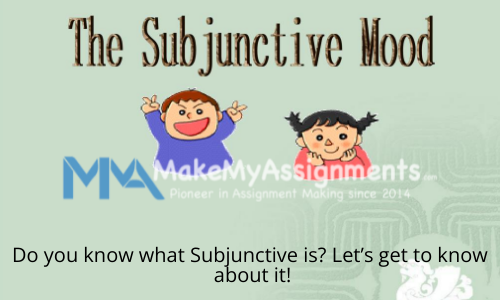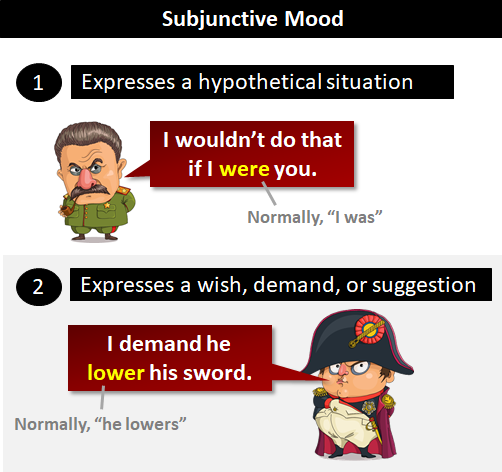
Do you know what Subjunctive is? Let’s get to know about it!
The tone of every assignment is just as important as the message you deliver through it. When you need to express your thoughts or feelings about a topic or how things will turn out in a situation, the tone is what matters. A subjunctive mood, which is a type of grammatical mood, plays a major role here. For instance, a hypothetical situation can be expressed in the subjunctive mood. Writers can use it to communicate their ideas, dreams, hopes, aspirations, and everything else. Subjunctive writing usually begins with phrases like ‘I thought it will… If I were…’
Functions of Subjunctive
Using subjunctives in an assignment is not easy; it’s a frame of mind. It is a kind of ambiguous language you use when discussing what will happen, what will happen in the future, or what you expect. Subjunctive mood words, phrases, clauses, and sentences can be stated using the basic form of the verb in a finite clause. If necessary, you can also use ‘be’ or ‘were’ in the form of a sentence’s connecting verb.
Subjunctive rules
Not every time in a sentence, but casually, subjunctive mood sentences contain two or more clauses. A clause is a word group consisting of a verb and subject. Independent clauses tend to function as whole sentences independently, but this doesn’t happen in the case of the dependent clause.
Previous and current Subjunctive
The past Subjunctive, as the name itself suggests, is a kind of mood that is used express events that you hoped or wished had occurred. In these types of sentences, we often use the verb ‘were.’
The present Subjunctive uses the base form of a verb to discuss a hypothetical situation in the present or future tense.
A guide to Subjunctive
In a sentence, the Subjunctive can resemble the imperative or conditional moods. Whenever you employ the Subjunctive in a sentence, you are stating something that is not at all concrete. Also, when you convey a definite result or situation, you do not use the subjunctive mood. The subjunctive clause’s verb might be transitive, ditransitive, or intransitive. The number of objects does not determine the mood here; instead, it is determined by the form of the verb. Historically speaking, the subjunctive mood in English was more prevalent back then. Because of this, there are many phrases that are outdated today-
- Heaven forbid!
- God bless you
- Whatever the case,
- Simply say
Now we can conclude here by saying that subjunctive mood uses the simple form of a verb in a finite tense. It is even true for irregular verbs as well. However, it is essential to note that whenever you include a subjunctive clause containing the verb ‘to be,’ one of the most well-known English irregular verbs, it takes one of these two forms – be or were.
Working with subjunctive mood and other related components of English writing is quite challenging for students. Students must seek online assignment help for their daily academic projects and assignments and will receive the best product from these services. Online assignment help services deliver high-quality assignments before the deadline that too at affordable rates. So what are you waiting for? Head straight toward our website and learn more about our offers and benefits.



